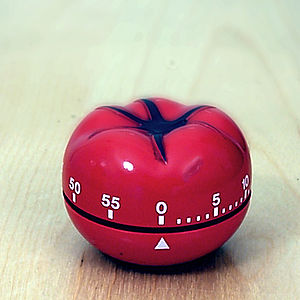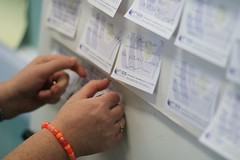
Cover of Thelma & Louise
Perhaps what is true for one of my dissertation clients is also true for you. She says that sometimes a day will pass, and she hasn’t done any writing.
How do you use your time? How are you spending your time?
Do those two questions mean the same thing? It seems to me that we all use our time one way or another, but the word spending suggests the value of time and the limited nature of time.
I see in my mind’s eye Louise, in Thelma and Louise, driving her Thunderbird convertible purposefully down the desert road, mentally calculating what she and Thelma need as she plots their getaway. Thelma is slumped in the passenger’s seat. “How much money do you have,” Louise asks. Thelma distractedly pulls a few bills from her billfold.
Just as Thelma starts to say $60, the wind rips a 20 dollar bill from the passive Thelma, who aimlessly revises their resources downward to $40.
If you’re like Thelma and Louise, you need to plan ahead a bit more. It’s hard to find more time or money. As Louise says, “We’re going to need more.”
So how can you determine how you are spending that valuable resource of time and where are you going to find more?
One of my dissertation coaching clients is planning a course of action that you might also try.
She has chosen to track how she is using her time each day. Specifically she is going to keep track of each block of 30 minutes in her day by recording her answers to the following:
1. Where am I going?
2. What am I doing?
3. How long does it take?
What are you doing that is so important?
She wants to determine how much of her time is already scheduled. Why does it seem that she is always going somewhere, rushing here or there? Why does the activity or the responsibility take so much time?
Where is the time that I am going to devote to my dissertation?
She will be able to see the chunks of time when she could be writing. She thinks she has time that is available for writing if only she looks closely at how she is living 30-minute segment of her day.
Then what?
That found time will then be scheduled for her dissertation work—written into her calendar– and she will show up for that scheduled writing.
Try it yourself– Track how you are using your time.
Use a legal pad or an appointment calendar. How many chunks of time do you have in any given day that you can lay claim to for writing?
Challenge yourself
Write your dissertation in the time you have available.
I’d love to hear from you. What free chunks of time can you find in your day once you actually look for them? Now what will it take to spend those chunks on writing? Write your dissertation in the time that you have.
Let’s talk!
All good wishes,
Nancy
Nancy Whichard, Ph.D., PCC
Your International Dissertation Coach and Academic Career Coach
http://www.dissertationbootcamp.net
http://www.usingyourstrengths.com
http://www.smarttipsforwriters.com

